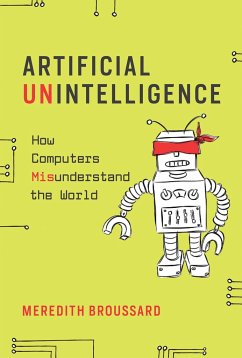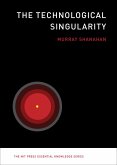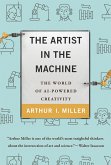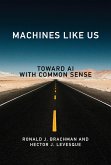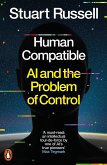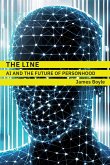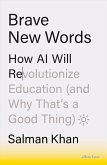A software developer s misadventures in computer programming, machine learning, and artificial intelligence reveal why we should never assume technology always get it right.
In Artificial Unintelligence, Meredith Broussard argues that our collective enthusiasm for applying computer technology to every aspect of life has resulted in a tremendous amount of poorly designed systems. We are so eager to do everything digitally hiring, driving, paying bills, even choosing romantic partners that we have stopped demanding that our technology actually work. Broussard, a software developer and journalist, reminds us that there are fundamental limits to what we can (and should) do with technology. With this book, she offers a guide to understanding the inner workings and outer limits of technology and issues a warning that we should never assume that computers always get things right.
Making a case against technochauvinism the belief that technology is always the solution Broussard argues that it s just not true that social problems would inevitably retreat before a digitally enabled Utopia. To prove her point, she undertakes a series of adventures in computer programming. She goes for an alarming ride in a driverless car, concluding the cyborg future is not coming any time soon ; uses artificial intelligence to investigate why students can t pass standardized tests; deploys machine learning to predict which passengers survived the Titanic disaster; and attempts to repair the U.S. campaign finance system by building AI software.
If we understand the limits of what we can do with technology, Broussard tells us, we can make better choices about what we should do with it to make the world better for everyone.
Hinweis: Dieser Artikel kann nur an eine deutsche Lieferadresse ausgeliefert werden.
In Artificial Unintelligence, Meredith Broussard argues that our collective enthusiasm for applying computer technology to every aspect of life has resulted in a tremendous amount of poorly designed systems. We are so eager to do everything digitally hiring, driving, paying bills, even choosing romantic partners that we have stopped demanding that our technology actually work. Broussard, a software developer and journalist, reminds us that there are fundamental limits to what we can (and should) do with technology. With this book, she offers a guide to understanding the inner workings and outer limits of technology and issues a warning that we should never assume that computers always get things right.
Making a case against technochauvinism the belief that technology is always the solution Broussard argues that it s just not true that social problems would inevitably retreat before a digitally enabled Utopia. To prove her point, she undertakes a series of adventures in computer programming. She goes for an alarming ride in a driverless car, concluding the cyborg future is not coming any time soon ; uses artificial intelligence to investigate why students can t pass standardized tests; deploys machine learning to predict which passengers survived the Titanic disaster; and attempts to repair the U.S. campaign finance system by building AI software.
If we understand the limits of what we can do with technology, Broussard tells us, we can make better choices about what we should do with it to make the world better for everyone.
Hinweis: Dieser Artikel kann nur an eine deutsche Lieferadresse ausgeliefert werden.
Included in Forbes's "6 Best Books On Artificial Intelligence" list
"Illustrated with examples from Broussard's own work and experience, this is an intensely personal journey that gives a real sense of travelling with a friend. Her descriptions of hackathons and other aspects of start-up culture are honest and atmospheric, capturing the social as well as the technical aspects of the marketplace in a way that anchors moments of technical innovation in their time and place. Hopefully, this book will gather a wide general, as well as academic, audience. It deserves to become a classic but, even more, it deserves to be read and debated."
Times Higher Education
"Her book serves as a straightforward and necessary primer on the predictable ways historically speaking that AI and big data tend to let us down Broussard lays out clearly and firmly just how duped we've been by the unique brand of technological boosterism that develops when technologists, and even whole fields of technology, have little to no social accountability."
American Scientist
"This is, quite simply, the best book I've read about computers and the problems of 'technochauvism'. Everyone should read it and it should be force-fed to every programmer in the world, as a reminder that machines are not always the answer to human problems."
Information Research
"This book is appropriate for the general public, computer science students, librarians, information professionals, and policymakers concerned with the increased presence of Artificial Intelligence in everyday life. Anyone intrigued with ethical implications of Artificial Intelligence or Machine Learning will find this book informative and useful."
Journal of Intellectual Freedom and Privacy
"This book deserves praise as a timely, accessible and often entertaining account that sets the record straight on what current approaches to AI are and are not capable of delivering."
LSE Review of Books
"Illustrated with examples from Broussard's own work and experience, this is an intensely personal journey that gives a real sense of travelling with a friend. Her descriptions of hackathons and other aspects of start-up culture are honest and atmospheric, capturing the social as well as the technical aspects of the marketplace in a way that anchors moments of technical innovation in their time and place. Hopefully, this book will gather a wide general, as well as academic, audience. It deserves to become a classic but, even more, it deserves to be read and debated."
Times Higher Education
"Her book serves as a straightforward and necessary primer on the predictable ways historically speaking that AI and big data tend to let us down Broussard lays out clearly and firmly just how duped we've been by the unique brand of technological boosterism that develops when technologists, and even whole fields of technology, have little to no social accountability."
American Scientist
"This is, quite simply, the best book I've read about computers and the problems of 'technochauvism'. Everyone should read it and it should be force-fed to every programmer in the world, as a reminder that machines are not always the answer to human problems."
Information Research
"This book is appropriate for the general public, computer science students, librarians, information professionals, and policymakers concerned with the increased presence of Artificial Intelligence in everyday life. Anyone intrigued with ethical implications of Artificial Intelligence or Machine Learning will find this book informative and useful."
Journal of Intellectual Freedom and Privacy
"This book deserves praise as a timely, accessible and often entertaining account that sets the record straight on what current approaches to AI are and are not capable of delivering."
LSE Review of Books

